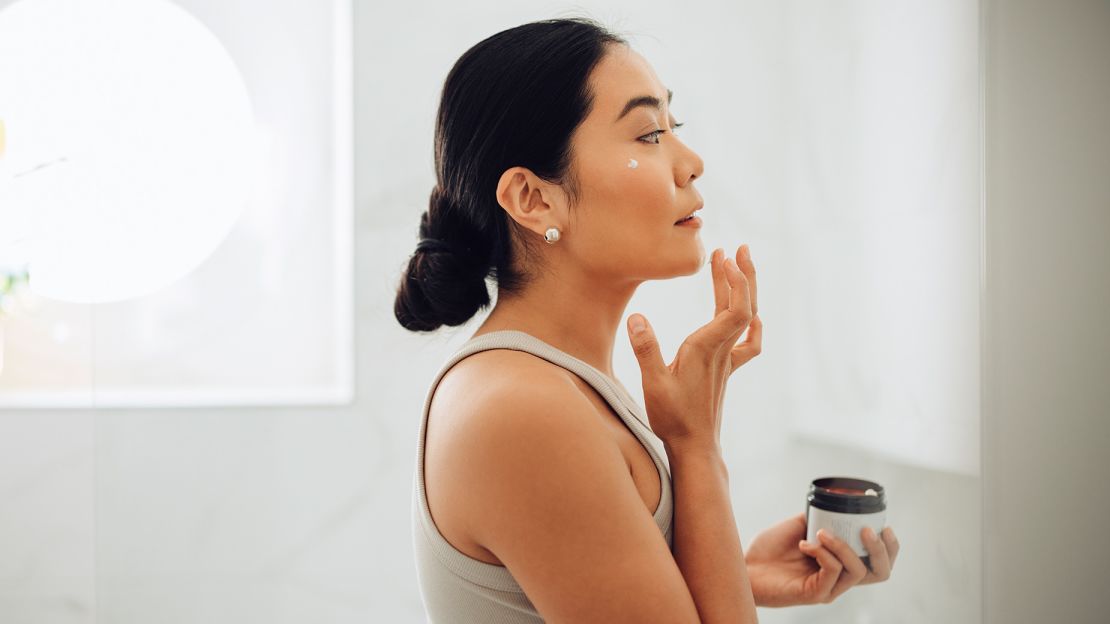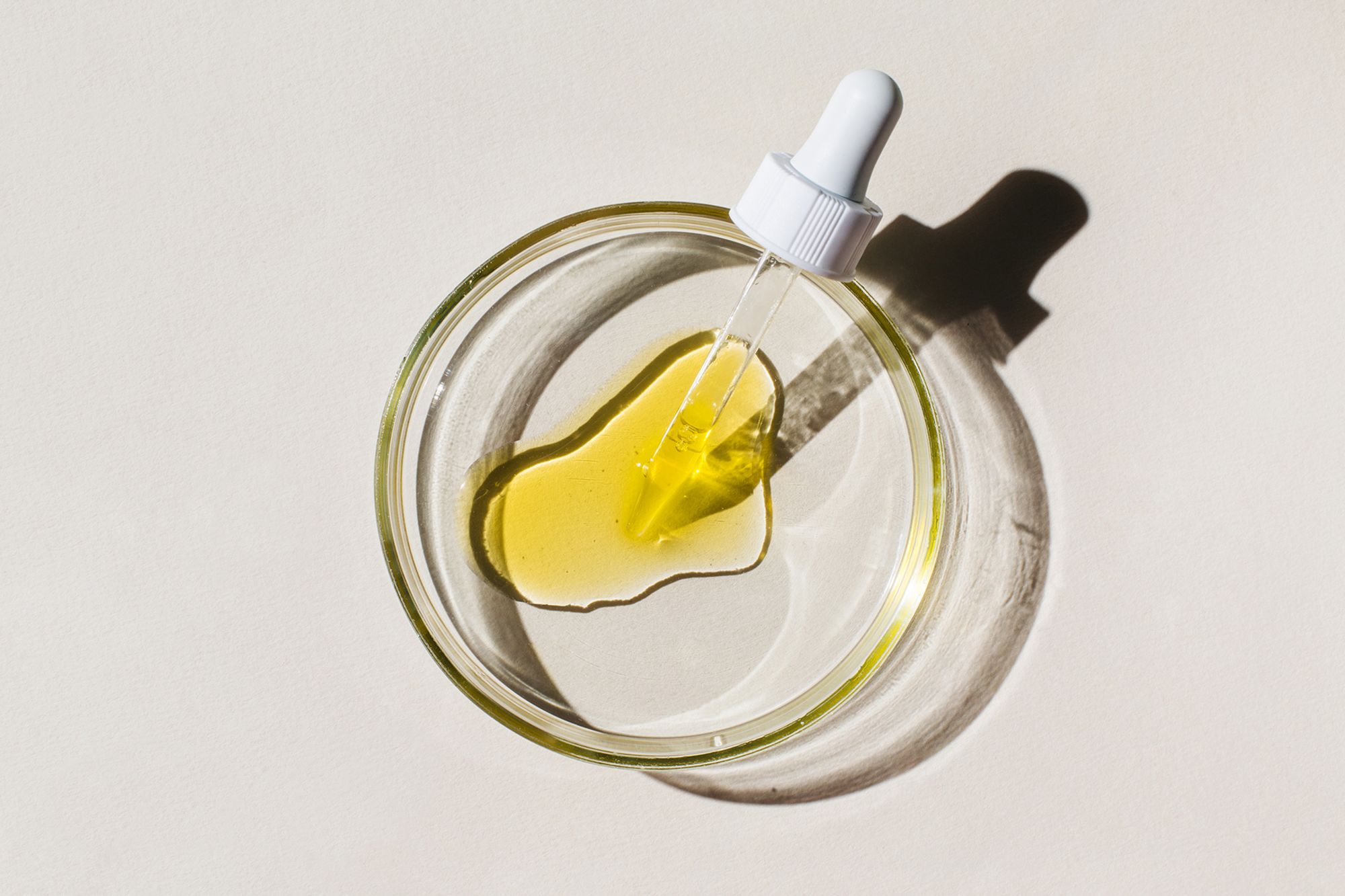Editor’s Note: This article was originally published by?The Business of Fashion, an editorial partner of CNN Style.
(CNN) — Influencer Emma Brooks never really worried about aging — until she turned 20.
“I started freaking out,” she said. “I look different than I did two years ago… How am I going to look in five years?”
Though the oldest among them is only around 26, Gen-Z is already anxious about looking older. Prevention, rather than correction, has become the status quo; they’re opting for makeup products with anti-aging benefits like fine-line reduction and SPF protection, and 70 percent use anti-aging serums daily, according to intelligence firm Circana. Botox start-up Peachy said Gen-Z is its fastest-growing cohort. Earlier this year, in a dramatic example of the trend, a TikTok titled “Things I do to slow the aging process as a 14 year old” went viral.
“This generation is taking on the skin-care routine of someone older,” said Larissa Jensen, beauty industry advisor at Circana.
Now, even when 20-somethings come to dermatologist and beauty brand founder Loretta Ciraldo for other concerns like breakouts, most end up steering the conversation towards aging.
Thanks to Instagram, TikTok and, of course, Zoom, people are spending more time than ever looking at their own faces. Online, they share routines aimed at “preventative aging,” encompassing everything from applying retinoids, vitamin C and sunscreen to wearing face tape at night and getting “baby botox” in an attempt to prevent lines from forming in the first place. Searches and social buzz surrounding botox, dermal fillers and retinol increased 63 percent this year, said the retail intelligence platform Trendalytics.
Gen-Z’s early appetite for anti-aging beauty has created an opportunity for brands to tap into a consumer they historically haven’t considered, said Rich Gersten, co-founder of True Beauty Ventures. Efficacy, fast results and cost are front of mind for the group, but there’s still much to determine about how their preferences will evolve as they grow up.
“It’s a bit of a juxtaposed generation. On the one hand, they’re about body positivity, authenticity, credibility, and then on the other side, they’re very focused on anti-aging. They use filters and put an emphasis on perfection,” said True Beauty Ventures co-founder Cristina Nu?ez. “There’s positivity on one side and fear on the other.”
Gen-Z is hyper aware and knows more about skin care, the aging process and environmental stressors than any prior generation, said Jensen. With that, Gen-Z has given anti-aging a wellness-centric rebrand.
Dylan Heberle, a 26-year-old consultant, for example, views his skin care as tied to health and is vigilant about sunscreen first and foremost to prevent skin cancer, with an added benefit of preventing wrinkles. He sees his nightly skin care as a habit akin to exercise.
“It ties back to the rise of all-encompassing self-care … taking better care of one’s skin and oneself,” said Judah Abraham, chief executive of Gen-Z focused incubator Slate Brands.

Gen-Z wants to slow down the aging process, rather than correct problems later, said Diala Haykal, a Paris-based dermatologist. The age group’s popularization of “prejuvenation” — procedures that focus on prevention — represents the most significant change in cosmetic dermatology in the past two decades, she added.
Brands are making more products to meet demand. The volume of skin care or beauty products referencing anti-aging rose 10 percent over the past two years, according to Trendalytics. Searches for sunscreen have more than tripled, and there are nearly three times as many sunscreen products on the market today compared to three years ago. Gen-Z-focused E.l.f Beauty debuted a retinoid last year, and Bubble launched an eye cream in November.
In the wake, brands specifically tailored to young skin are cropping up, including Btwn, a skin-care label based on the idea that teen skin is not adult skin, and Indu, a teen skin and makeup brand by Feelunique co-founders Aaron Chatterly and Richard Schiessl with a list of no-go harsh ingredients.
Gen-Z is also embracing injectables because of their immediate results. Botox, which Heberle first learned about on social media, appealed to him as a potentially more effective and less expensive replacement for fine line-erasing products. Young people being willing to come off the street and get a “tweakment” done is a development you didn’t see a decade ago, said Nu?ez.
Paul Nassif, a facial plastic surgeon best known for his appearances on the E! series “Botched,” said he’s seen an uptick in younger people seeking out peels, facials and occasionally a little laser. Instead of bringing pictures of celebrities when they come for consultations, Gen-Z brings photos of themselves — with a filter on, said Nassif.
“There’s this idea of, ‘Aging is a privilege. Let your hair go grey. Don’t get botox. Don’t do all these preventative measures.’ Yes, aging is a privilege. But living another year is aging. Showing wrinkles and having grey hair is not aging to me,” said Heberle.
In any conversation about Gen-Z and aging, it’s impossible to avoid the impact of social media.
The hashtag #antiageing has 7.4 billion views on TikTok, for example. The aged filter, which gave users a look into the future, went viral earlier this year, garnering 24.5 million posts, including from Kylie Jenner. Solutions like Frownies (essentially, a sticker you sleep in to smooth out wrinkles), silicone anti-wrinkle pads from brands like Dermaclara, jaw-lift chin straps, face tape for “fox eyes” and radio-frequency devices like NuFace are everywhere.
Gen-Z’s candor on social media apps has helped fuel demand for treatments, said Carolyn Treasure, co-founder of Peachy. When Gen-Zers get injections, they often film the process or share testimonial videos afterwards, scrunching their faces in timelapse compilations to show how it freezes them.
“Millennials present this idealized snapshot of the world. They’re like, ‘Let me tell my friends at brunch,’” said Treasure. “Gen-Z is very into sharing their experience. (They tell me) ‘I don’t want to gate keep. I want others to know about this.’”
Education, which is done primarily on social media, plays a large role in sparking interest in preventative ageing, said Jensen, with dermatologists (and high schoolers in their bedrooms) broadcasting skin-care advice to the masses.
Still, more information doesn’t always mean it’s accurate. Many young consumers come to Ciraldo with problems they think are related to ageing but are actually caused by premature use of harsh chemicals, she said. There is also not much long-term research available on the effects of “prejuvenation” treatments on a younger demographic.
Plus, access to so much information can feel confusing and anxiety-inducing for a generation still figuring out its way in the world.
“We’re so young to be so worried about growing old,” said Brooks.
This article was originally published by?The Business of Fashion, an editorial partner of CNN Style. Read more stories from The Business of Fashion?here.
